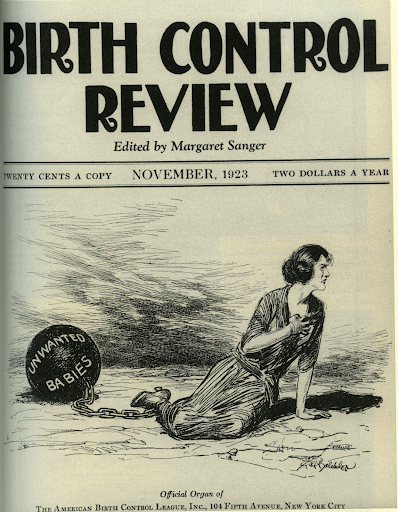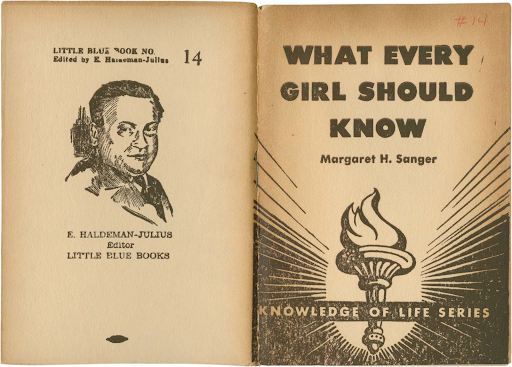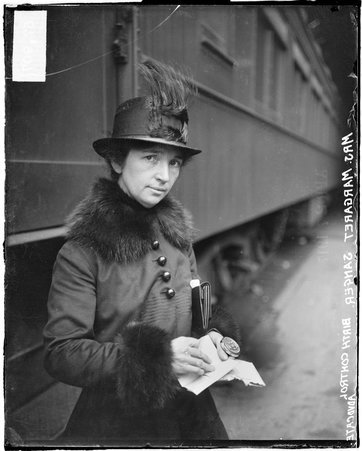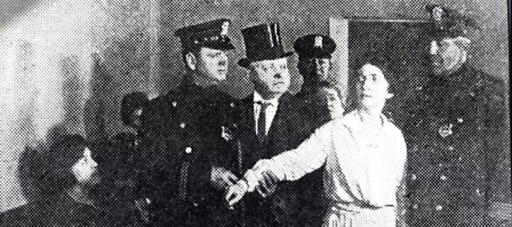
Birth Control Review, edited by Margaret Sanger, 1923. Courtesy of the CSUN Library.

What Every Girl Should Know by Margaret Sanger, 1916. Courtesy of the CSUN Library.
Much of the Pill's early development can be attributed to Margaret Sanger, a feminist and activist who devoted her career to the birth control movement and advocated for increased access to contraception.

Margaret Sanger. Courtesy of the Chicago History Museum.
"I believed it was my duty to place motherhood on a higher level than enslavement and accident. I was convinced we must care about people; we must reach out to help them in their despair."
- Margaret Sanger, This I Believe. November, 1953.
Margaret Sanger on the Mike Wallace Report, 1957. Courtesy of the Harry Ransom Center.
"My interests have expanded from local conditions and needs, to a world horizon, where peace on earth may be achieved when children are wanted before they are conceived."
- Margaret Sanger, This I Believe. November, 1953.

Birth Control Review, edited by Margaret Sanger, 1923. Courtesy of the CSUN Library.

What Every Girl Should Know by Margaret Sanger, 1916. Courtesy of the CSUN Library.
Born into a working-class family in New York, Sanger decided to become a nurse when her mother's death from the strain of eighteen pregnancies caused her to see the dangers of pregnancy firsthand. Sanger provided accessible information to women by mailing pamphlets about contraceptives. In 1916, she was arrested for starting an illegal birth control clinic and sending "obscenities" through U.S. mail, violating the Comstock Act. She later became involved in the controversial eugenics movement, which was widely discredited for its agenda.

Police arresting Margaret Sanger, 1916. Courtesy of Friends of the Margaret Sanger Papers.
At the 1921 First American Birth Control Conference, Sanger discussed the actions required to repeal the restrictive legislation on birth control. To appeal to a wider audience, she highlighted the correlation between poverty and larger families while arguing for the use of contraception as a solution to indigence.